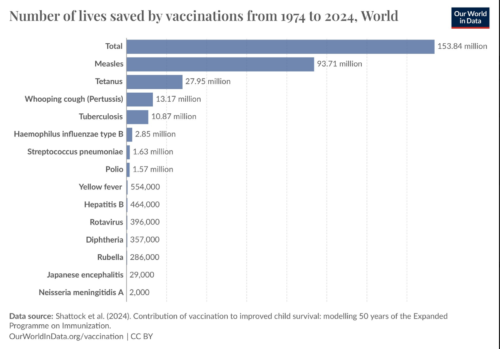The lyrics don’t quite fit the situation, but the spirit of this song seems appropriate for today: Goodbye to You!
Elections
RFK Jr
A significant number of people seem to be showing interest in RFK Jr’s candidacy….which I guess is somewhat understandable given the widespread frustration with the two major parties. His highly-recognizable name surely doesn’t hurt, either. But I see major problems with some of his policy positions..and the attitudes underlying those policies.
First, he doesn’t seem to be much of a supporter of free speech–listen to this video clip, in which he expresses a wish that climate change skeptics could be jailed. And note the shot at “the Koch brothers”, which sounds like something one would expect to hear from a politician of the extreme Left. (Also this, which seems to be the first part of the above video) ‘Reckless endangerment’–for what? For operating chemical plants?
Second, he seems to be anti-vaccine…not in the sense of raising specific concerns about a specific vaccine, but much more broadly–read this articleand watch this video clip. See also this NIH paper on vaccine safety.
Here’s an estimate of the number of lives saved by various vaccines over the last 50 years.

I don’t agree with the guy who linked the above chart at Twitter when he said “There is no vaccine problem. There has never been a vaccine problem. There will never be a vaccine problem.” We can’t possibly know what problems will occur with future vaccines, and there have indeed been some problems with past vaccines. But he is certainly correct that vaccines overall have been a major lifesaver.
Neo has done some research into RFK Jr’s past statements about vaccines.
I find it interesting the RFK Jr thinks people should be put in jail for doubting what he thinks is the scientific consensus on climate, while he himself makes quite bold statements against the scientific consensus on vaccines.
Third, here is what RFK Jr had to say about nuclear energy.
So, it sounds like basically he would take nuclear off the table over any relevant time frame…while simultaneously demanding extreme action against fossil fuels in the name of climate.
Fourth, here’s an absolutely bizarre RFK Jr statement concerning Covid and Ashkenazi Jews.
Fifth, here’s what he said about the people who live in ‘red’ states. Reminiscent of Hillary Clinton’s “basket of deplorables” and Obama’s comment about people who are “bitter” and who “cling to guns or religion or antipathy to people who aren’t like them.”
Overall, RFK Jr seems more interested in attacking and casting blame than he does in solving problems–in this, he resembles Joe Biden.
Your thoughts?
Vote Fraud may determine the 2020 election.
The Democrat Party has been perfecting their techniques of voter fraud for many years. In 1960, the presidential election was determined by vote fraud in Chicago and Texas. Chicago has a long history of stolen elections. It is a joke to many Chicago residents but Chicago determines Illinois’ electoral votes.
Chicago is famous for its history of people voting from the grave and for helping President John F. Kennedy “steal” the 1960 election. (JFK beat Richard Nixon by 9,000 votes in Illinois by capturing what some considered a suspiciously high 450,000 advantage in Cook County.)
Officials insist voter fraud has largely disappeared in Chicago, but Donald Trump, the Republican presidential candidate, has said voter fraud and “horrendous” things happen in Chicago.
The city’s election history is even crazier than most people realize, though, with Republican feuds leading to homes being bombed and names being stolen from tombstones just to get extra votes for the “Democratic Machine.”
Texas was just as bad in the days when it was run by Democrats. San Antonio was particularly famous as a corrupt fief of George Parr, a political boss. Lyndon Johnson used his influence with that boss to win the Senate election of 1948 and the presidential election of 1960.
A study of Lyndon B. Johnson provides new evidence that the 36th President stole his first election to the United States Senate, in 1948.